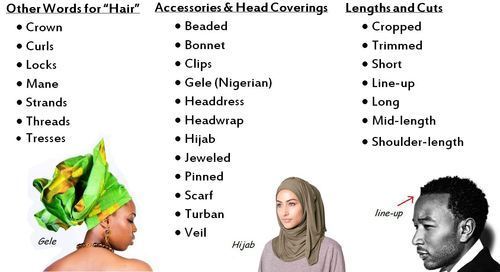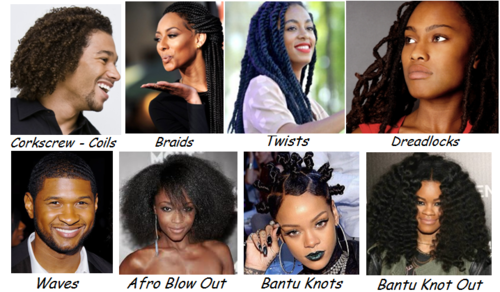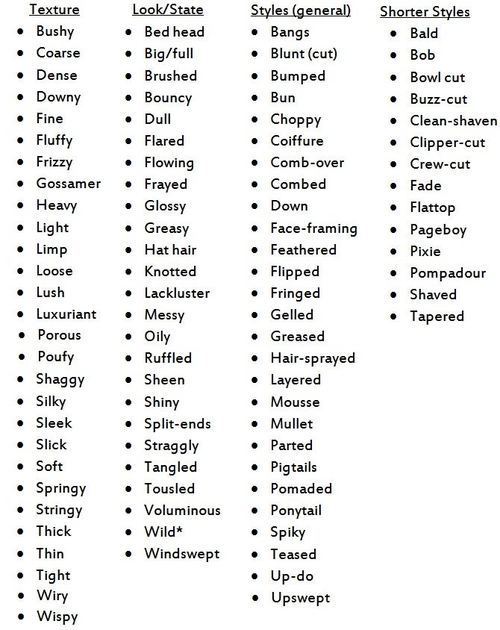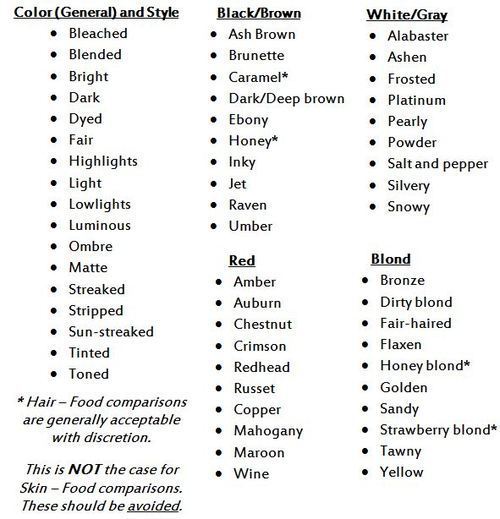Here Are Some Fiction Books By Palestinian Authors About Palestinian Characters That I've Read And Enjoyed!







Here are some fiction books by Palestinian authors about Palestinian characters that I've read and enjoyed! Whether it's about living under the occupation or teenage diaspora falling in love, it's important to support Palestinian authors and read their stories, especially as attempts at censorship increase Let me know if you have any recs for me to add to my tbr!
More Posts from Charm-writes and Others
Hi!! i love how you write gods and the lore surrounding them!! i cant wait for more- salvatore my beloved
!!! 🥺🥺 thank you so much, charm-writes!! I see this is your writeblr, so I also wish the best for your own writing endeavors! I'd love to see what you write in the future. Before that time comes, I will have to keep refining the lore and the world to keep up!
Thanks so much for sending your love, and Salvatore sends theirs as well through the warmth of tomorrow's morning sun ☀️💖


One struggle 🫡
If the call to read diverse books gets you hot under the collar, I need you to lean into that discomfort a little and ask yourself the question: What would happen if I did?
First and foremost, let’s make sure we are on the same page about the diverse books effort. When someone says “Read more diversely,” what they are asking is for you to take the author into consideration when you are choosing your next read. It’s unfortunate that we live in a world where current prejudice and a long history of prejudice impact the day to day lives of minority groups, but the publishing industry is largely white, heteronormative, able bodied, and cis. We can uplift authors of color, disabled authors, and queer authors by purposefully looking for their books, especially when the publishing industry fails them time and time again.
This does not mean that you can’t read books by white, cis, straight authors. A focus is not an exclusion. All that is being asked is that alongside your normal reads, you intentionally branch out into more diverse writers.
Creating space for more diverse authors is important because people deserve to tell their own stories. Have you ever read something in your area of expertise and the author just got it so incredibly wrong? This happens with identity, too. Not only is it cringe worthy when someone outside the community gets the essence wrong, it can also be incredibly harmful by spreading destructive stereotypes. Allowing community members to tell stories about their community empowers them and helps to establish good representation in mainstream media.
Representation matters because every person deserves to see themselves well represented in a book they love. It’s so easy to feel alone, especially if you are part of a minority community. Books open up a window for us to feel more connected and to understand our identities. It’s no wonder that having positive representation has been shown to increase self-esteem.
Even if the representation isn’t your identity, it’s still incredibly important. Diversity is a teacher. We live in an age of echo chambers. It’s so easy to get sequestered into our own personalized bubble on the internet. Putting yourself in a place to listen to the stories of people different from yourself is vital for connecting with others, for understanding their struggles, and for building solidarity in our communities. It will stretch you in the best of ways.
And finally, if that wasn’t enough, we should read diverse because we deserve to read excellent stories. Diverse books are brilliant. They challenge the industry, inject new life blood into publishing, keep thing fresh and exciting. Diverse books are stunning. They are well written, and fun, and capture the imagination. Diverse books keep the humanity in publishing, because humanity is millions of unique facets joined together into a whole. Why would you limit yourself to just one?

“You can either let this journey crush you, or let it transform you into someone stronger.”
A scene from the newly-released, New-York-Times-bestselling (?!) book Zachary Ying and the Dragon Emperor, art by 最后的L and water effects by me! 🤗
Honestly, Zachary Ying is a book I didn’t think I’d have the strength to write. The concept is very wild and wacky, yes—the First Emperor of China possessing a young Chinese American boy’s AR gaming headset and compelling him on a journey across China to heist magical artifacts—but writing the story required me to dig deep into my complicated relationship with my heritage.
When I immigrated to Canada in 6th grade, I spent a year as the only Asian kid in the school of a small town. In that one year, I became self-conscious of all sorts of things that didn’t seem to matter before: the way I looked, the way I spoke, the clothes I wore, the media I liked. The white kids wouldn’t insult me outright, but they’d ask me questions that made me embarrassed of my differences from them. I felt backward, alien. The feelings of isolation and rejection I experienced took me many, many years to unpack. It’s been a long journey, learning to love myself again, and I drew much strength from stories in Chinese history to do so.
However, as the years passed, I’ve also watched in horror as the government of China became increasingly authoritarian, cracking down on dissent and committing genocidal atrocities against minority ethnic groups, of which I belong to one myself. Being Chinese has become so painfully political. Pride in Chinese culture is no longer as simple as that, but could accidentally play into the Chinese government’s use of traditional culture as propaganda. Yet on another hand, there’s the necessity of demystifying and defending Chinese culture to combat anti-Chinese racism. Many diaspora like myself are caught in the crosshairs, struggling to find the balance. But what I firmly believe is that traditional Chinese culture and history don’t belong to the Chinese government. It belongs to the Chinese people, both native and diaspora. If we distance ourselves from our heritage specifically because of the Chinese government, that’s letting them win, validating their claim to be the one true representative of Chinese culture when that is absolutely not the case.
Through Zack’s journey in this book, I wanted to engage with the complexities of Chinese identity, but I also want to have fun. This book remains a love letter to my 12-year-old self, taking inspiration from everything I love—anime, video games, sci-fi, and of course, Chinese history and myths. You’ll find appearances by real figures from said history and myths, wielding magic inspired by their legends, along with many famous Chinese artifacts.
If any of that sounds fun to you too, especially if you like Percy Jackson or Yugioh, I really think you’d like this book as well 😩✌🏼 You can find out where to get it at ZacharyYing.com!
Words to Describe Hair

Image: Words to Describe Hair: Afro | Curly | Straight | Look | Texture | Style | Color
Photo credits: Alex Nemo Hanse
This began as a guide to describing Afro / curly hair but of course, I got carried away. From look and texture of hair, colors and various styles, this guide serves as a thesaurus of sorts for hair, as well as pointers for use in your writing.
Please check under the read more for an accessible version of these lists

Culturally Significant Hair Coverings:
Know the meaning behind head wear and why it’s worn, when and by whom, such as a Native Nation’s headdress, before bestowing a character with it.
Head Coverings Resources:
More on various head coverings.
See here for more Islamic Veils.
See here for more on the Nigerian gele.
See here on African American Headwraps.
View our hijab and headscarves tags for discussion on these topics.
Afro - Curly - Straightened


There are many varieties of braids, twists & Afro hair styles; have some more!
African/Black Hair: Natural, Braids and Locks
African Hair: Braiding Styles 10 African Types
Describing Black (Afro) hair:
Appropriative Hairstyles: Keep in mind that Afro styles should be kept to those in the African Diaspora, such as dreadlocks, cornrows + certain and many braided styles.
Also, “locs” is a more favored term over “dreadlocks” for many people.
Tread carefully describing Afro hair as “wild” “unkempt” “untamed” or any words implying it’s unclean or requires controlling.
“Nappy” and “wooly” are generally words to stay away from, the first having heavy negative connotations for many and the latter, though used in the Holy Bible, is generally not acceptable anymore and comes off as dehumanizing due to Animal connotations.
There are mixed feelings on calling Black hair “kinky.” I’m personally not opposed to the word in itself and usage depends on the person’s race (I’m more comfortable with a Black person using it vs. a Non-Black person) as well as their tone and context (if it’s used in a neutral or positive tone vs. negatively/with disdain). Get feedback on your usage, or simply forgo it.
See our tags “Black Hair” and “Natural Hair” for more discussion on describing Black hair.
Texture - Look - Styles


Hair Colors and Style


Writing Tips & Things to Keep in Mind:
Combination Words: Try combining words to illustrate look of hair. A character with springy coils that dance across her shoulders with every movement, the man with thick silvery hair slicked back into a ponytail…
Mind Perspective: Depending on POV, a character might not know exactly what cornrows or a coiffure style is, at least in name, and it might make more sense if they described the hairdo instead. More defining terms might come from a more knowing source or the wearer themselves. One book I read described a girl’s afro puff as “thick hair pulled up into a cute, curly, poufy thing on top of her head and tied with a yellow ribbon.”
POC & Hair Colors: People of Color’s hair comes in all shades and textures. There are Black people with naturally blond and loosely-textured to straight hair, East Asian people with red hair, and so on. Keep that in mind when coding characters if you tend to rely on hair color alone to denote a character is white vs. a Person of Color.
Related Tropes: There are tropes and discussion related to People of Color, colored hair, and light-colored hair and features.
Check out these posts on the topic: The East Asian Women + Colored Hair Trope - Black Characters & “Wild” Hair Colors - POC w/ Supernatural Colorful Features. - ‘Uncommon’ Features & POC Characters
~Mod Colette
Read more for accessible versions of the lists:
Lees verder







Here's some beautiful covers of upcoming books! 📚

And since people were doin Soul Jam Light designs I figured I'd do some for Common Beasts.
Duty, Reason, Civility, Productivity and Unity
Idk about everybody else, when I think ANCIENT EMBODYMENT OF AN IDEA my brain does go to Animals and stuff like that. I also attempted to do an alliteration thing (as seen with the Duty Dragon and the Reason Ram) but gave up.
-
 babymalta reblogged this · 1 month ago
babymalta reblogged this · 1 month ago -
 elenasereia liked this · 2 months ago
elenasereia liked this · 2 months ago -
 salahsaalaxx liked this · 3 months ago
salahsaalaxx liked this · 3 months ago -
 pinkbabby liked this · 3 months ago
pinkbabby liked this · 3 months ago -
 charm-writes reblogged this · 6 months ago
charm-writes reblogged this · 6 months ago -
 super-stardust56 liked this · 6 months ago
super-stardust56 liked this · 6 months ago -
 fleuromi liked this · 6 months ago
fleuromi liked this · 6 months ago -
 awakenyourfaith liked this · 7 months ago
awakenyourfaith liked this · 7 months ago -
 perksofbeingavillian liked this · 8 months ago
perksofbeingavillian liked this · 8 months ago -
 unfriendly-neighborhood-feminist reblogged this · 9 months ago
unfriendly-neighborhood-feminist reblogged this · 9 months ago -
 froggreencoffee reblogged this · 9 months ago
froggreencoffee reblogged this · 9 months ago -
 froggreencoffee liked this · 9 months ago
froggreencoffee liked this · 9 months ago -
 brightwist liked this · 9 months ago
brightwist liked this · 9 months ago -
 wheycheese liked this · 9 months ago
wheycheese liked this · 9 months ago -
 whoreslut-supreme reblogged this · 9 months ago
whoreslut-supreme reblogged this · 9 months ago -
 whoreslut-supreme liked this · 9 months ago
whoreslut-supreme liked this · 9 months ago -
 daisy-mooon reblogged this · 9 months ago
daisy-mooon reblogged this · 9 months ago -
 daisy-mooon liked this · 9 months ago
daisy-mooon liked this · 9 months ago -
 the-quasar-literata reblogged this · 9 months ago
the-quasar-literata reblogged this · 9 months ago -
 jollygoodsometimes liked this · 10 months ago
jollygoodsometimes liked this · 10 months ago -
 ourrainyevenings reblogged this · 10 months ago
ourrainyevenings reblogged this · 10 months ago -
 nejjcollectsbooks liked this · 10 months ago
nejjcollectsbooks liked this · 10 months ago -
 diversebookblr reblogged this · 10 months ago
diversebookblr reblogged this · 10 months ago -
 diversebookblr liked this · 10 months ago
diversebookblr liked this · 10 months ago -
 bi-ologistofthehills liked this · 1 year ago
bi-ologistofthehills liked this · 1 year ago -
 mariposagal reblogged this · 1 year ago
mariposagal reblogged this · 1 year ago -
 neaarchi liked this · 1 year ago
neaarchi liked this · 1 year ago -
 kaijuqgle reblogged this · 1 year ago
kaijuqgle reblogged this · 1 year ago -
 kaijuqgle liked this · 1 year ago
kaijuqgle liked this · 1 year ago -
 mariedemedicis reblogged this · 1 year ago
mariedemedicis reblogged this · 1 year ago -
 ranichi17 reblogged this · 1 year ago
ranichi17 reblogged this · 1 year ago -
 saddsoki liked this · 1 year ago
saddsoki liked this · 1 year ago -
 i-will-talk-your-ears-off liked this · 1 year ago
i-will-talk-your-ears-off liked this · 1 year ago -
 luckytigershark liked this · 1 year ago
luckytigershark liked this · 1 year ago -
 masterofchickenscratch liked this · 1 year ago
masterofchickenscratch liked this · 1 year ago -
 xsadifornia liked this · 1 year ago
xsadifornia liked this · 1 year ago -
 gothgleek reblogged this · 1 year ago
gothgleek reblogged this · 1 year ago -
 bi-lullaby liked this · 1 year ago
bi-lullaby liked this · 1 year ago -
 calicotomcat reblogged this · 1 year ago
calicotomcat reblogged this · 1 year ago -
 anynymouse reblogged this · 1 year ago
anynymouse reblogged this · 1 year ago -
 blossoming-solitary-rose liked this · 1 year ago
blossoming-solitary-rose liked this · 1 year ago -
 ginzloveslife liked this · 1 year ago
ginzloveslife liked this · 1 year ago -
 zylaa reblogged this · 1 year ago
zylaa reblogged this · 1 year ago -
 cheesiefoam liked this · 1 year ago
cheesiefoam liked this · 1 year ago

21 | Chinese | Autistic | Aspiring Fantasy Writer and Narrative Designer | Fae and Chinese Mythology Enjoyer | @charmycharmcharms' writeblr!
91 posts


